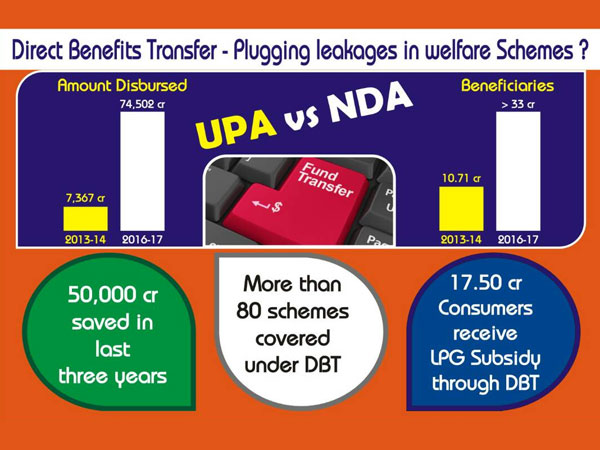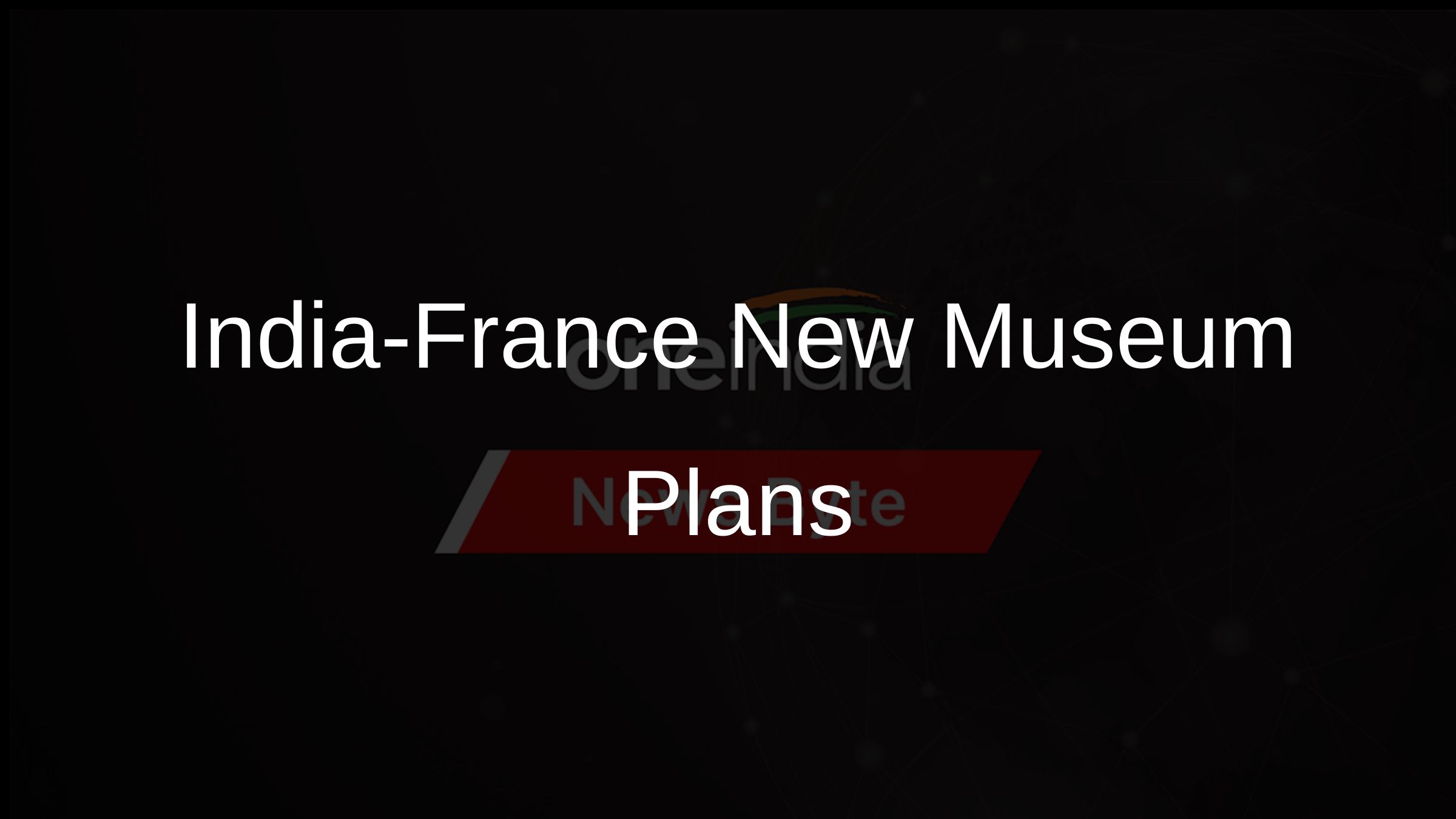
Direct Benefit Transfer: Tracking the Progress under Modi
Direct Cash Transfers are increasingly emerging as a key instrument of delivering social welfare benefits around the world. India also realised the potential of this mechanism and numerous pilot programmes were initiated by the UPA government. However, initial attempts by the previous government failed miserably due to low financial inclusion and inadequate IT infrastructure. Has Modi Government done anything different in realising the true potential of DBT? What has been the progress on DBT under PM Modi?

What is DBT and Why is it Important?
To put it simply, DBT refers to transferring the subsidy benefits directly to the beneficiary's account rather than issuing cheques, giving cash payments or price rebates on services/goods supplied by the government. It has been argued that DBT considerably reduces leakages in social welfare system. The mechanism also ends the role of intermediaries in numerous government programmes which reduces avenues for leakages.
How has been the progress under Modi Government?
Like all good ideas, implementation of DBT is extremely difficult for any state. It requires a multi-dimensional approach with synchronization inefforts across various departments. The basic requirement is high financial inclusion and the necessary IT infrastructure. The Modi government seems to have adopted a systematic approach for introducing DBT in government programmes. One of the reasons for the failure of DBT for LPG subsidy under the UPA was limited reach of banking facilities and lack of infrastructure. Contrary to this NDA first launched a massive programme for financial inclusion - Jan Dhan Yojana for making banks accessible for the lower class. The 28 crore plus Jan Dhan Accounts are critical for the success of DBT. Also, the government's immense focus on expanding AADHAR enrollement and linking of bank accounts with AADHAR numbers has helped immensely in ensuring a smooth roll out of the DBT initiatives. Presently, more than 80 schemes across more than 15 ministries are covered under DBT.
As per figures released by the government,shift to DBT has led to savings of more than Rs. 50,000 croresover the last three years.
During the UPA's tenure, only around 7,367 crore wasdisbursed through DBT benefiting 10.71 crore beneficiaries in 2013-14. This number has risen tremendously under NDA to an amount of Rs 74, 502 crore and more than 33 crore beneficiaries in 2016-17.
Pahal - A Success
The PAHAL programme for DBT of LPG subsidy was announced in November 2014. Initially introduced as voluntary enrolment, now the LPG subsidy is only provided through DBT. Currently, more than 17.50 crore LPG consumers receive subsidy payments directly to their bank account. The success of this scheme has helped the government in curbing black marketing of cylinders.
DBT in Kerosene
Taking the initiative forward, the government plans to roll out DBT in Kerosene subsidy nationwide. A centrally incentivized scheme would be introduced where in states will receive annual slab based incentives for the first four years,. This has already been adopted by numerous states across the country.
Fertilizer Subsidy reform through DBT
The long awaited Fertilizer subsidy reform is expected to be rolled out in the Kharif season in 2017. The 70,000 crore fertilizer subsidy is expected to be channelized through 2 Lakh point-of-sale (POS) machines across the country via biometric authentication of the farmer. The post sale subsidy system is already being undertaken as pilot in 17 districts. If implemented properly, this will be a landmark economic reform and could drastically bring down rampant leakages in the fertilizer subsidy.
Conclusion
Successful introduction of DBT would be instrumental in reducing 'grass root level' corruption faced by citizens in accessing government programmes. Reduction in leakages would improve public perception about government programmes and the increased trust could induce greater enrolment. Also, the infrastructure built for DBT shall be critical in the future if the government decides to introduce Universal Basic Income (UBI). Moving forward, the government envisages that the JAM trinity (Jan Dhan - Aadhar- Mobile) enable it to expand the DBT programme.
(Nitin Mehta is managing partner, Ranniti Consulting and Research. Pranav Gupta is an independent researcher.)
Read in Telugu: అవినీతి అంతం: మోడీ ప్రభుత్వంలో కీలకంగా ‘డీబీటీ’


 Click it and Unblock the Notifications
Click it and Unblock the Notifications

































